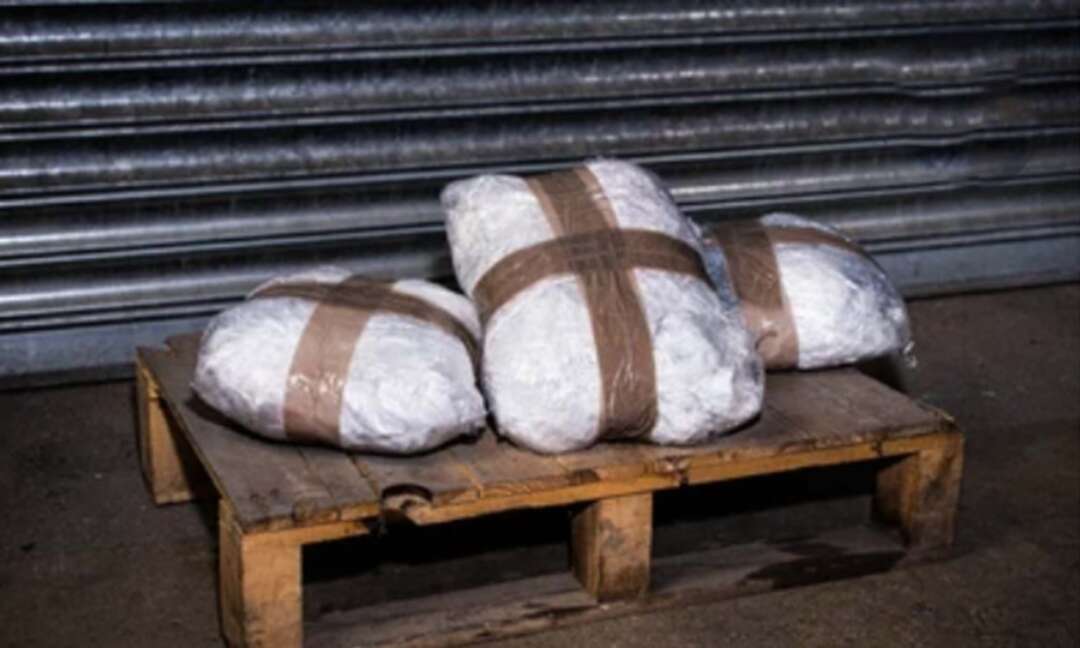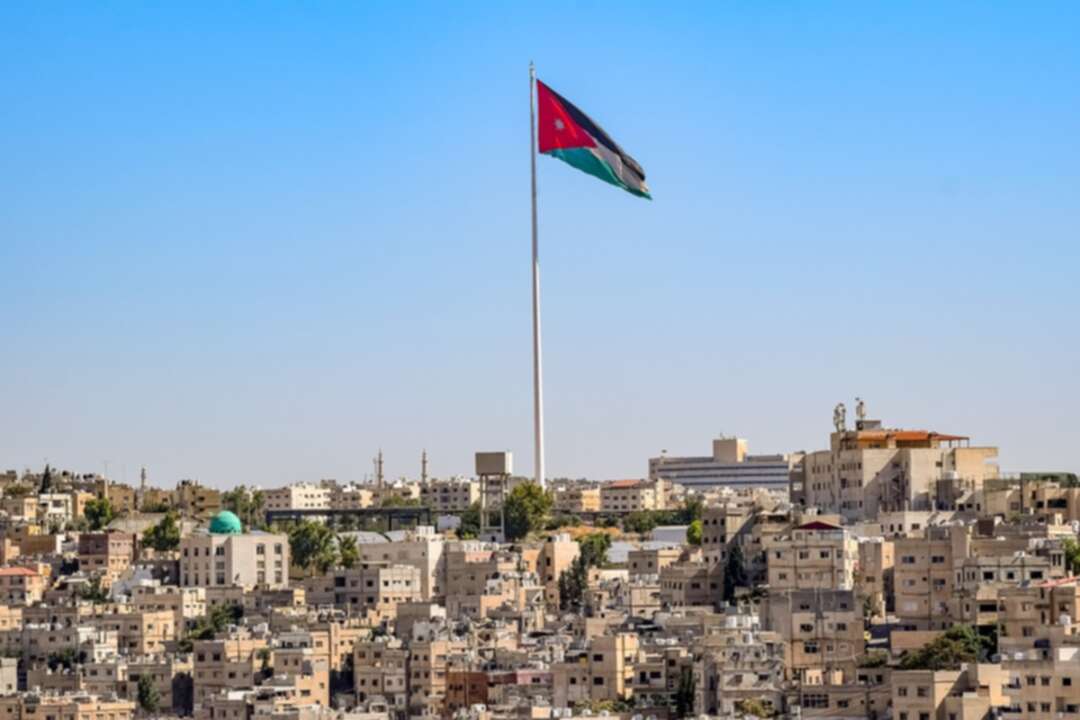-
Jordan witnesses increase in drug smuggling attempts from Syria

The Arab News reported that with the latest figures from the Jordanian Armed Forces revealing a “dramatic” increase in drug smuggling attempts from Syria, experts have warned of the war-torn country becoming a narco-state, posing cross-border threats to nearby Jordan, the region and the rest of the world.
The Jordanian army said in a recent statement it had thwarted 361 infiltration and smuggling attempts from Syria into the kingdom, and seized about 15.5 million pills of narcotics of different types, including Captagon and tramadol, more than 16,000 sheets of hashish weighing 760 kg and almost 2 kilograms of heroin.
Jordan’s Customs Department said on Jan. 12 that working with anti-narcotics teams its personnel foiled an attempt to smuggle 2.7 million Captagon pills in two trucks traveling from Syria at the Jaber-Nasib border crossing.
A military source, who requested anonymity, told Arab News the figures were “dramatically high.”
The person said: “Illicit drug cultivation and manufacture has become a growing industry in Syria."

The Jordanian army said it foiled more than 130 infiltration and smuggling attempts from Syria in 2020 that resulted in the seizure of about 132 million Captagon pills and more than 15,000 sheets of hashish.
Drugs smugglers go to extreme lengths to avoid Jordan’s surveillance of its borders with Syria, which stretch more than 360 km, but several have been shot or killed by border guards in their efforts to cross.
German court expected to accuse Assad regime of crime against humanity for the first time
In October, the Jordanian army said it shot down a drone carrying a large quantity of drugs as it flew over the border.
Another Jordanian security source, who also spoke on condition of anonymity, said that traffickers from Syria used secret routes and tunnels to smuggle their illicit products into the kingdom.
“Having all these routes spotted by the Jordanian army, smugglers resort to other methods, including drones and even animals,” the person said.
According to the Syrian news website Enab Baladi, drug smuggling operations are most active in Syria’s southern regions of Daraa and Al-Suwayda. Most of the smuggling routes are controlled by armed Bedouin tribes that have affiliations inside Jordan, it quoted sources as saying.
Drugs and hashish: Tehran and Hezbollah's profitable trade in Daraa
It added that traffickers used sewer pipes and tunnels to smuggle drugs into Jordan.
In November 2018, the Jordanian army said it thwarted a “large terrorist scheme” to infiltrate the kingdom via the Trans-Arabian Pipeline.
Experts say the strong presence of Lebanon’s Shiite militant organization Hezbollah in Syria and the expansion of its drug trafficking operations are the main reasons for the war-torn country becoming a narco-state, and the increase of drug smuggling into Jordan, Arab Gulf states and Europe.
Cross-border humanitarian Syria aid gets 6-month extension without new UN vote
In remarks to Arab News, Fayez Dweiri, a retired major general and military analyst, said Hezbollah had resorted to the narcotics trade to secure funding after the US sanctions on Iran.
“There is an established illicit drugs industry for Hezbollah in Beirut’s Dahieh Al-Janubiya in the Shiite stronghold of Baalbek. Hezbollah has relocated some of its drug factories to Aleppo and other Syrian government-controlled regions,” he said.
Dweiri said Hezbollah had always used its money laundering and drug trafficking networks to finance its military arsenal and operations, and to fund the social services for its constituents.
He said: “The US sanctions on Iran have hit Hezbollah hard, obliging Tehran’s most funded proxy to look for other sources of revenues."
Asked whether the Syrian government was involved in illicit drug trafficking, Dweiri said: “I don’t have any documents proving that but to let Hezbollah operate such massive illicit activities in the country is alone a big crime.”
US sanctions Iranian oil tanker, its captain for ‘selling illicit oil to Syria’
Enab Baladi claimed that drugs were being smuggled from Lebanon to Syria in vehicles backed by the armed forces, meaning they could pass through military checkpoints without being inspected.
According to a report by the Washington Institute for Near East Policy, Hezbollah has significantly expanded and institutionalized its drug trafficking enterprises, which now generate more money than its other funding streams. The think tank claimed that Hezbollah’s global narcotics industry began in Lebanon’s Bekaa Valley in the 1970s, using well-established smuggling routes across the Israel-Lebanon border.
Source: arabnews
You May Also Like
Popular Posts
Caricature
BENEFIT Sponsors BuildHer...
- April 23, 2025
BENEFIT, the Kingdom’s innovator and leading company in Fintech and electronic financial transactions service, has sponsored the BuildHer CityHack 2025 Hackathon, a two-day event spearheaded by the College of Engineering and Technology at the Royal University for Women (RUW).
Aimed at secondary school students, the event brought together a distinguished group of academic professionals and technology experts to mentor and inspire young participants.
More than 100 high school students from across the Kingdom of Bahrain took part in the hackathon, which featured an intensive programme of training workshops and hands-on sessions. These activities were tailored to enhance participants’ critical thinking, collaborative problem-solving, and team-building capabilities, while also encouraging the development of practical and sustainable solutions to contemporary challenges using modern technological tools.
BENEFIT’s Chief Executive Mr. Abdulwahed AlJanahi, commented: “Our support for this educational hackathon reflects our long-term strategic vision to nurture the talents of emerging national youth and empower the next generation of accomplished female leaders in technology. By fostering creativity and innovation, we aim to contribute meaningfully to Bahrain’s comprehensive development goals and align with the aspirations outlined in the Kingdom’s Vision 2030—an ambition in which BENEFIT plays a central role.”
Professor Riyadh Yousif Hamzah, President of the Royal University for Women, commented: “This initiative reflects our commitment to advancing women in STEM fields. We're cultivating a generation of creative, solution-driven female leaders who will drive national development. Our partnership with BENEFIT exemplifies the powerful synergy between academia and private sector in supporting educational innovation.”
Hanan Abdulla Hasan, Senior Manager, PR & Communication at BENEFIT, said: “We are honoured to collaborate with RUW in supporting this remarkable technology-focused event. It highlights our commitment to social responsibility, and our ongoing efforts to enhance the digital and innovation capabilities of young Bahraini women and foster their ability to harness technological tools in the service of a smarter, more sustainable future.”
For his part, Dr. Humam ElAgha, Acting Dean of the College of Engineering and Technology at the University, said: “BuildHer CityHack 2025 embodies our hands-on approach to education. By tackling real-world problems through creative thinking and sustainable solutions, we're preparing women to thrive in the knowledge economy – a cornerstone of the University's vision.”
opinion
Report
ads
Newsletter
Subscribe to our mailing list to get the new updates!






















